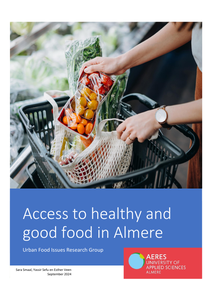"In recent years, the former Dutch welfare state has been transformed into a participation society [1]. As support from the government decreases, citizens are increasingly expected to be self-managing. Since not everyone is able to be self-managing, there is an increasing demand for help offered by volunteers. Although the number of volunteers in the Netherlands is relatively stable, the amount of time per volunteer has decreased over the past couple of years [2]. Most volunteers traditionally come from the wealthier, more educated segment of society and are likely to be female, married with children, 50+, and active in religion [3, 4]. In order to meet the increasing demand for volunteers, either the amount of time spent per volunteer should be increased, or new groups of volunteers should be attracted. The Dutch foundation “Possible Today” started an initiative aimed at motivating (potential) volunteers: Social Credits for Volunteers. This is digital platform, based on block chain technology, connects volunteers with projects. The platform uses a digital currency -Social Credits- to appreciate and reward the efforts of volunteers. The currency can be exchanged for discounts or other value, offered by organizations and stores that feel involved with the community. An important feature of this system is the opportunity for volunteers to draft a social curriculum vitae. The aim of this study is to generate recommendations for Possible Foundation about how the Social Credits Platform should be designed and deployed in order to persuade (potential) volunteers to spend (more) hours on volunteering. Therefore, the following research question is answered: ‘What motives, desires and barriers traditional and less traditional volunteers have in regard to appreciation and reward for volunteering?’"
DOCUMENT

LINK
In this chapter, the governmental as well as nongovernmental organization of sports in Belgium will be discussed. However, in the framework of this book, it is not possible to present an in-depth analysis. Therefore, this contribution should be considered as a brief overview of the most relevant features of sport policy and sport participation in Belgium. First, we describe the sport system, including the core principles of the organization of sport in Belgium. Second, attention is given to the fi nancing of sport, with a special focus on household expenditures on sport as well as the economic equivalence of sport volunteerism. Third, the sport policies of the three communities are shortly described. In the last section, the focus is on the active involvement in sport. Here sport participation rates and trends are studied along with the issue of social stratifi cation. Due to the specifi c political structuration of Belgium, the present study mainly focuses on the sport system and sport participation in the northern part of this country, that is, Flanders. Future research is needed to present a more complete study of sport policy and sport participation for the country as a whole.
LINK
This report delves into food insecurity in Almere, focusing on how residents with limited financial means access and consume (healthy) food. The study employed an action research approach, engaging directly with affected individuals and stakeholders to understand their challenges and co-develop solutions. The primary aim was to empower participants by amplifying their voices and providing actionable insights into addressing food insecurity in the community. To achieve this aim we conducted workshops, in-depth interviews and a study using WhatsApp.
DOCUMENT
